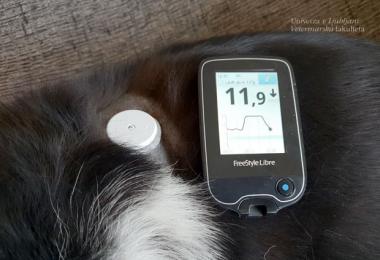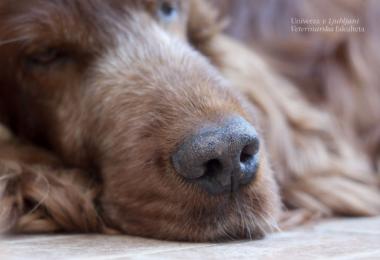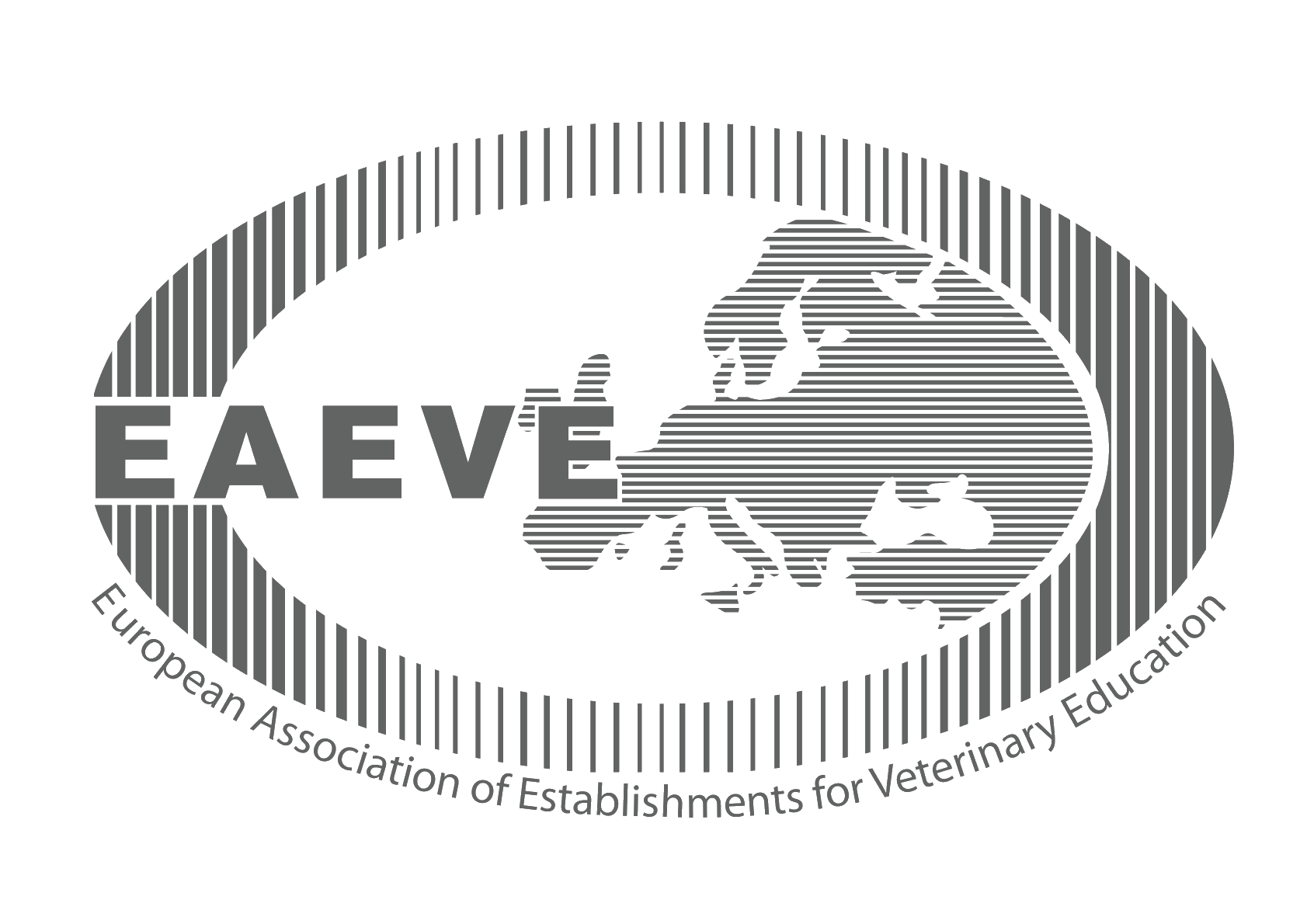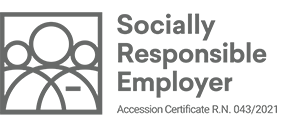Subscribe to our service announcements and helpful tips.
Federation of European Companion Animal Veterinary Associations (FECAVA)
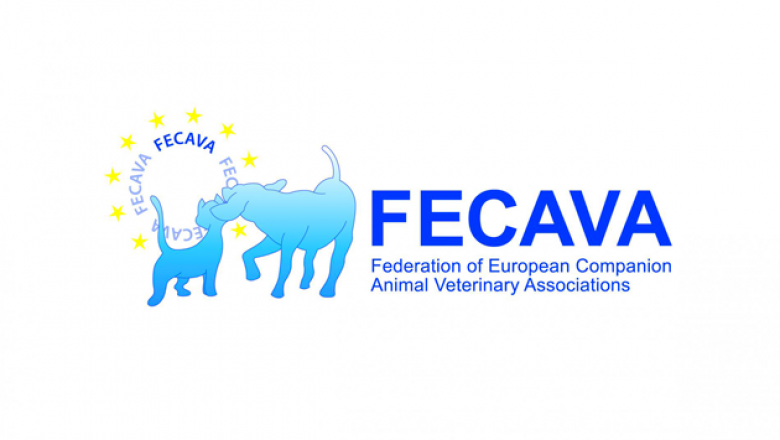
FECAVA (Federation of European Companion Animal Veterinary Associations) is an organisation dedicated to developing the veterinary profession and bringing together small animal veterinarians within Europe. Its aim is to make continuous progress in the care of small animal health, to strengthen human-animal bonding and to improve the concept of 'One Health'.
The FECAVA achieves its objectives through projects for the development of the veterinary profession, liaising with relevant organisations and promoting cooperation between European veterinarians.
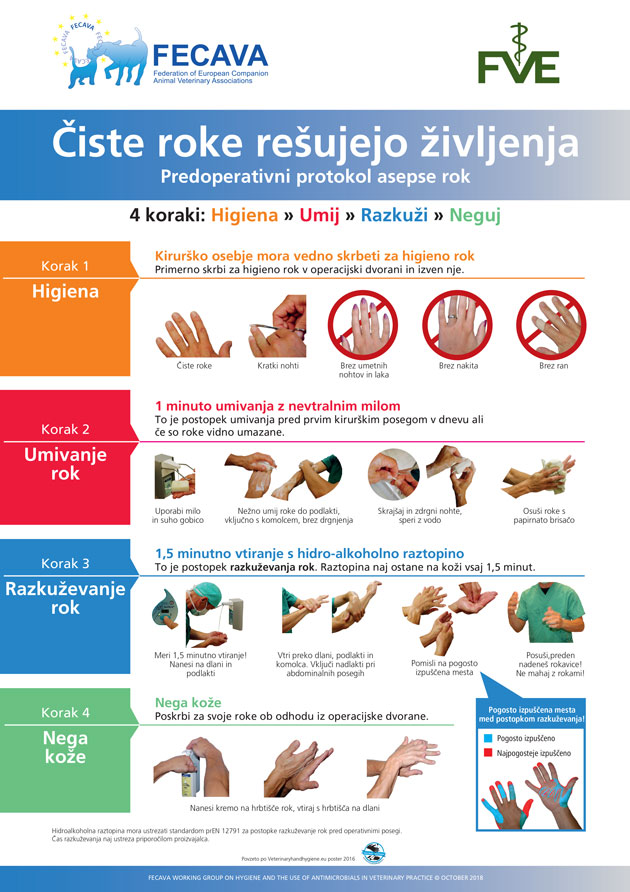
1. poster: Clean hands save lives (PDF).
The FECAVA was formally established on 12 May 1990. Its founders decided to also publish their own newsletter - the first EJCAP (European Journal of Companion Animal Practice) was published in 1990, and since 2012 EJCAP has been released four times a year as an online edition.
The FECAVA organises a congress once a year - the first EuroCongress took place in 1994 in Paris. Under its auspices VetCEE (Veterinary Continous Education) was created to provide ongoing education in the field of small animal veterinary medicine. The FECAVA is also involved in antimicrobial resistance projects, campaigns against the illegal trade in puppy dogs, prevention of dog bites, social and economic values of family animals, the issue of stray dogs, etc.
Slovenia, or rather the Slovenian umbrella organisation that integrates small animal veterinarians (SZVMŽ), is a member of the FECAVA. Therefore, all veterinarians who are active members of SZVMŽ are members of the FECAVA.
Working groups from different fields are organised within the FECAVA to inform the those working in the field of veterinary medicine of the latest guidelines in each area. Thus, a working group on vector-transmitted diseases (Assist. Dr. Urška Ravnik Verbič is a member of this group) is preparing an overview of the most important vector-transmitted diseases of dogs in Europe. The working group will first publish posters on its website, produced by the working group for hygiene, which are designed to highlight the problem of the proper use of antimicrobials and workplace hygiene.
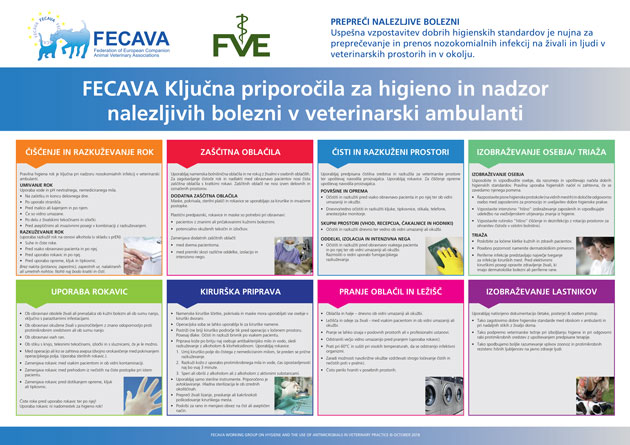
2. poster: Key recommendations for hygiene and the control of infectious diseases in veterinary clinics (PDF)
The first poster in this series shows how to properly wash and disinfect hands before surgery. Surgeons are generally well aware of the rules of asepsis, but it is important that veterinarians who do not perform surgery on a daily basis know how to apply these principles, since they can also endanger patients, themselves, and not least the owners of animals in outpatient and inpatient care. It is also important that owners of sick animals are aware of the basics of hygiene, as this protects themselves, family members and other pets in the household, while significantly influencing the outcome of treatment for the diseased animal. To this end, the FECAVA working group has issued a second poster with recommendations for the hygiene and control of infectious diseases in veterinary clinics.
The next poster will feature tips for the responsible use of antimicrobial agents. Until then… wash your hands!
Location
Gerbičeva 60
SI-1000 Ljubljana
Slovenija
Sample Reception
Samples are received at several locations throughout Slovenia. See where.
The veterinarian on duty
Emergency veterinary assistance for dogs and cats and a telephone number of constant readiness.
Library
A wide selection of domestic and foreign professional literature in the field of veterinary medicine and other sciences.
Main navigation
-
Education
- Informativni dan
- Why to become a veterinarian?
- Undergraduate Studies
- Postgraduate studies
- Pripravništvo
- Summer Schools
- Continuous education
- Professional Development
- International Activity
- Mednarodna dejavnost - Tuji študentje
- The Path to Creative Knowledge
- Tutoring
- Extracurricular Activities
- Career Centres
- Alumni
- Student organizations and societies
- Quality Assurance
- Clinics
- Diagnostics
- Dobrobit
- NVI
- Research
- About us
- Hub

